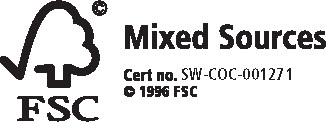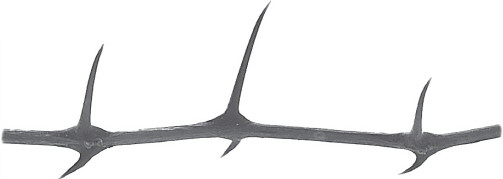Ecological Intelligence
Read Ecological Intelligence Online
Authors: Ian Mccallum


ECOLOGICAL
INTELLIGENCE
REDISCOVERING OURSELVES IN NATURE
IAN McCALLUM
Foreword by Lyal Watson

©
2005, 2008 Ian McCallum
Originally published in 2005 by Africa Geographic.
All rights reserved. No part of this book may be reproduced, stored in a retrieval system, or transmitted in any form or by any means, electronic, mechanical, photocopying, recording, or otherwise, without written permission from the publisher.
The author gratefully acknowledges the permissions granted by the many individuals and publishers for material quoted and otherwise used in this book.
The excerpt on page 67 from
A Brief History of Time
by Stephen Hawking, published by Bantam Press, is used by permission of The Random House Group Limited.
The cartoon on page 95 from
Goatperson and Other Tales
by Michael Leunig, is used by permission of Penguin Books Australia.
The excerpt on page 97 from Robert Bly’s translation in
The Selected Poetry of Rainer Maria Rilke
, published by HarperCollins, and the excerpt on page 21 by Francis Ponge, translated by Beth Archer in
News of the Universe
, are used by permission of Robert Bly.
The excerpt on page 101 from
Good Natured: The Origins of Right and Wrong in Humans and Other
Animals
by Frans B. M. de Waal is used by permission of Harvard University Press.
©
1996 by Frans B. M. de Waal.
The poem “Lost” on page 177 from
Traveling Light: Collected and New Poems
by David Wagoner, published by the University of Illinois Press, is used by permission of David Wagoner and the University of Illinois Press.
©
1999 by David Wagoner.
The excerpts on pages 132, 155, and 176, from
Memoirs
by Pablo Neruda, published by Penguin Books, are used by permission of Souvenir Press Limited.
The excerpt on page 218 from
Billions and Billions
by Carl Sagan, published by Random House, is used by permission of the Estate of Carl Sagan.
©
1997 by The Estate of Carl Sagan.
Library of Congress Cataloging-in-Publication Data
McCallum, Ian, 1944-
Ecological intelligence : rediscovering ourselves in nature / Ian McCallum ; foreword by Lyall Watson.
p. cm.
Originally published: Cape Town : Africa Geographic, 2005.
Includes bibliographical references and index.
ISBN 978-1-55591-687-9 (pbk.)
1. Environmentalism. 2. Green movement. 3. Environmental responsibility. 4. Nature--Effect of human beings on. I. Title.
human beings on.
GE195.M4 2008
304.2--dc22
2008039669

Printed on recycled paper in Canada by Friesens Corp.
0 9 8 7 6 5 4 3 2 1
Design by Jack Lenzo
Fulcrum Publishing
4690 Table Mountain Dr., Ste. 100
Golden, Colorado 80403
800-992-2908 • 303-277-1623
This book is dedicated to three strange angels—
the naturalist, the scientist, and the poet in all of us

The thorns of the tree
Ziziphus mucronata
are spaced along the length of every branch in pairs. One of the pair points robustly outward and forward while the other curves back and inward in the opposite direction. The Nguni African legend says the thorns tell us something about ourselves—that we must look ahead to the future …but we must never forget where we have come from.
T
HIS BOOK WOULD NOT HAVE BEEN POSSIBLE WITHOUT THE ADVICE, support, and inspiration of the following remarkable people: Peter Borchert, Alessandro Bonora, Gillian Black, Mary Duncan and Shelley Prince of Africa Geographic, Anne Anderson, Jean Badenhorst, Chris Bakkes, Joan Berning, Antony Burgmans, George Ellis, Barbara Fairhead, Chic and Danna Flack, Brian Gaze, Michelle and Steve Henley, Map Ives, Lochie Jacobs, Dereck and Beverley Joubert, Festus Mbinga, Marlene McCay, Ian McMillan and Ian Michler of Invent Africa, Gus Mills, Jock and Rosie Orford, Di Paice, Nita Permuy, Peter and Beverly Pickford, Ian Player and the Wilderness Foundation, Felicity Swanson, Hermann Wessels, Lyall Watson and Grant Woodrow.
A special thank you to my editor, Di Paice, and to Felicity Swanson, who was an essential part of the flow and early formatting of this book.
To the wild animals of the Okavango and of the Linyanti in northern Botswana, thank you for sharing your river with me and for helping me to redefine the word
intelligence
.
To Colin Bell, Malcolm McCullough, and Grant Woodrow of Wilderness Safaris, thank you for making my Linyanti adventures possible.
To the many Botswana guides with whom I have worked—Greg Hughes, Vundi Kashamba, Marks Kehaletse, Bolatotswe Makgetho, Copper Malela, Frank Mashebe, Mike Myers, Moses Ntema, Clinton Phillips, James Pisetu, Isaac Seredile, and Maipaa Tekanyetso—thank you for what we have shared.
Finally, to my best friend and wife, Sharon—thank you for your love, your generosity of spirit, your patience, your attention to detail, and the countless hours you spent reading and rereading the manuscripts that gave rise to this book.
ecology
[ee kol o ji]
n.
—study of the relations of living organisms to their environment; study of ecosystems; study of the environmental conditions of existence (Croall and Rankin)
intelligence
[in telli jans]
n.
—the capacity to learn from experience, to think in abstract or symbolic terms, and to deal effectively with one’s environment (Atkinson, Atkinson, Smith, & Hilgard); the capacity of an animal to use tools, to solve problems, to find its way home, and to learn by imitation (Hauser)
Have we forgotten
that wilderness is not a place,
but a pattern of soul
where every tree, every bird and beast
is a soul maker?
Have we forgotten
that wilderness is not a place
but a moving feast of stars,
footprints, scales and beginnings?
Since when
did we become afraid of the night
and that only the bright stars count?
Or that our moon is not a moon
unless it is full?
By whose command
were the animals
through groping fingers,
one for each hand,
reduced to the big and little five?
Have we forgotten
that every creature is within us
carried by tides
of Earthly blood
and that we named them?
Have we forgotten
that wilderness is not a place,
but a season
and that we are in its
final hour?
We are connected with each other in surprising ways.
I
LEARNT THIS WHEN I WAS JUST EIGHT YEARS OLD, A CURIOUS CHILD TAKING pleasure in wandering barefoot and alone across the Great Karoo, semidesert plain that covers most of South Africa’s dry interior.
At first acquaintance these are bleak places, rusty and unforgiving, stretching to horizons broken only by occasional flat-topped stone koppies. But like all deserts, their delights lie in the detail.
Every day I discovered something new. Floral stones sculpted by the sun and wind and, between them, a wonderful variety of succulent plants camouflaged to look like pebbles waiting patiently for the next rare fall of rain. And once in a while I would be encouraged to encounter a whip-tailed lizard, a trap-door spider, or even a fossil shell left behind by an ancient sea.
These signs of life delighted me. They promised continuity, but I was totally unprepared for what I stumbled over one cloudless day…
It was a shiny stone, larger than my foot, one amongst many others, polished by the elements with reflective desert varnish. But this one was different. It was golden and beautifully shaped with the sort of symmetry that set it apart from the others. More than just a stone.
I knelt to get a closer look, and for a long time that was all I dared to do. I was afraid to touch it, but eventually my curiosity overcame my hesitance and I put my hand gently on it. And as I did, every hair on the nape of my neck bristled.
I knew what it was! A hand ax, carefully crafted to fit even my small hand. A message from the Stone Age, passed directly from the maker’s hand to mine across the gap of a million years.
I learnt much later that tools of this kind were manufactured by
Homo erectus
who used it as an all-purpose instrument for throwing, hammering, skinning, cutting, and scraping. The Paleolithic equivalent of a Swiss Army knife. Something made and used on the spot, or carried to the next site if it was found to be especially pleasing.
I still have this strange gift on my desk and it now fits my hand like a glove, continuing to give me great pleasure. To me it proves that intelligence is not peculiar to our species. It is the product of collecting, collating, crafting a deliberate choice, a work of art and early science.
This is what Ian McCallum calls
ecological intelligence
—involving “rediscovering ourselves in nature.” And it seems to me that his insights are the product of three skills.
Ian is a physician who doesn’t believe that there are any quick medical fixes, nor any easy ways to heal, for ourselves or our environments. But like Pythagoras, he suggests that everything is intelligent in its own way. He practices remedies that involve our return to nature. He encourages the rediscovery of our place in the world, and he teaches the restoration of ‘soul places’ whose absence from our lives are a direct cause of homesickness.
He is also a Jungian practitioner. He understands the importance and significance of having both a collective unconscious and a personal shadow. Armed thus he has a sound and balanced sense of evolutionary history, vital to understanding some of the mysteries inherent in the construction of weaverbird nests, termite mounds, shoaling fish, and all the other ‘ideas’ that help a number of species to compete in their Darwinian struggles for survival.
But perhaps most important of all, Ian is a published poet, a romantic who is not afraid to stretch scientific horizons and is uniquely qualified to deal with the paradoxes that run wild in the mindfield that lies between the extremes that science is forced to confront in questions involving the existence of the mind.
I admire this brave attempt to tackle a very difficult subject, which sheds new light on James Lovelock’s forecast that through human beings, the Earth may have its best chance of becoming conscious of itself.
LYALL WATSON
Ireland, 2005
